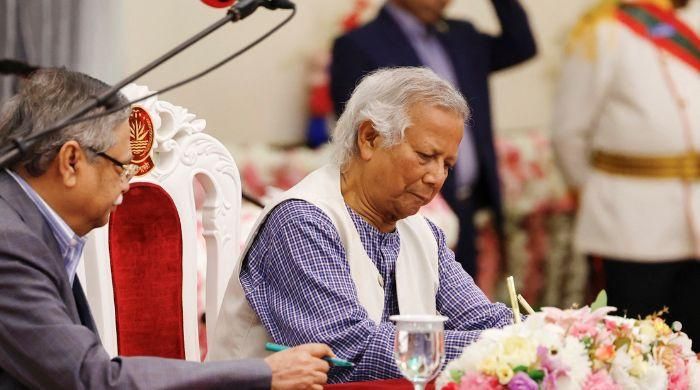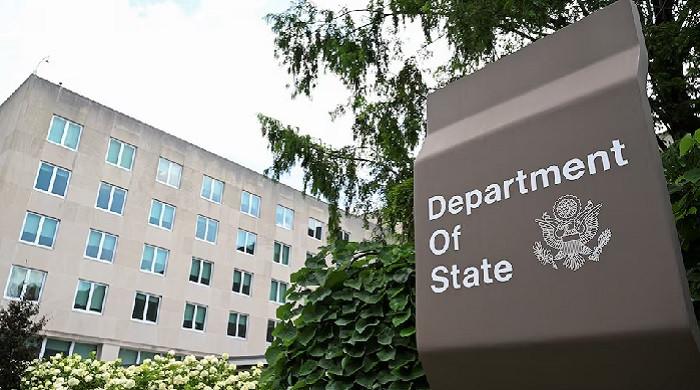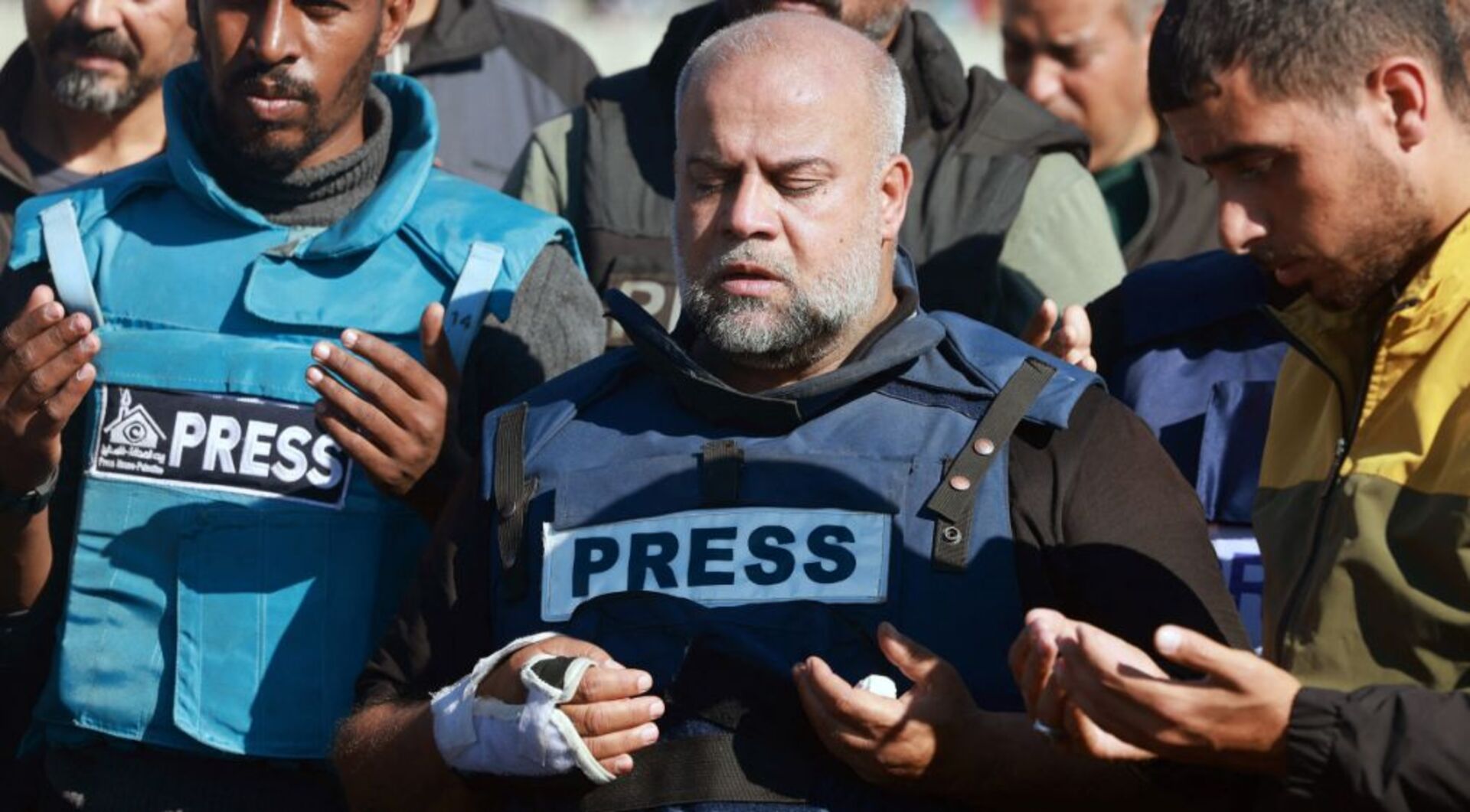- Yunus takes over in Bangladesh after Hasina's ouster.
- President swears in Yunus and 13 advisers.
- Whatever path the students show us, we will continue to follow it: Yunus
DHAKA: Nobel Peace Prize winner Muhammad Yunus has taken charge of Bangladesh's interim government, hoping to heal a country convulsed by weeks of violence that forced former Prime Minister Sheikh Hasina to resign and flee to neighbouring India.
Known as the “banker to the poor,” Yunus is the pioneer of the global microcredit movement. The Grameen Bank he founded won the Nobel Peace Prize in 2006 for helping lift millions of people out of poverty by providing small loans to the rural poor who are too impoverished to get the attention of traditional banks.
As senior adviser to the interim government, he is, however, tasked with restoring stability to a country that has suffered some of the worst violence in decades, and then holding new parliamentary elections.
“The country has the possibility of becoming a very beautiful nation,” Yunus told reporters as he arrived in Dhaka after receiving medical treatment in Paris, after protesters backed him for the post of interim president.
Student protesters had saved the country, he said, adding: “Whatever path our students show us, we will follow.”
Yunus, a harsh critic of Hasina, became emotional and appeared to hold back tears as he spoke of a student who he said had been shot during the protests and that his sacrifice could not be forgotten.
“Now we have to stand up again. To the government officials and defence chiefs here present: we are one family, we must move forward together,” he said.
Hasina's flight from the country she ruled for 20 of the past 30 years after winning a fourth term in January sparked jubilation and violence as mobs stormed and ransacked her official residence.
Following Hasina's departure, numerous Hindu homes, temples and businesses were vandalised and hundreds of members of the minority have tried unsuccessfully to flee to India this week. The Bangladesh Christian, Buddhist and Hindu Unity Council reported that a school teacher was killed and 45 others were injured.
Many Hindus have traditionally supported Hasina's Awami League party, which identifies as secular.
Power vacuum
Yunus' inauguration filled a power vacuum in the South Asian country of 170 million people and the world's fourth-largest Muslim population, created after Hasina resigned and flew to India on Monday.
President Mohammed Shahabuddin swore in Yunus and 13 aides who will help him govern, in a brief ceremony at the official presidential residence.
Three more aides will be sworn in at a later date, officials said. Nahid Islam and Asif Mahmud, two student leaders in their 20s who spearheaded the protests, were among the 13 who joined the interim government.
The ceremony began with a minute of silence in respect for the hundreds of people who died in the protests and clashes that broke out in July.
The military played a pivotal role toward the end of the crisis, signaling to Hasina that troops would not open fire on civilians to enforce the curfew declared on Sunday, sealing her fate. Reuters reported.
Hasina's party, the Awami League, is not in the interim government. In a Facebook post, her son Sajeeb Wazed Joy said the party had not given up and was willing to hold talks with the opposition and the interim government.
The main opposition Bangladesh Nationalist Party (BNP) has boycotted two national elections following the arrest of its leaders and has demanded fresh polls within three months.
India calls for protection of Hindus
Hasina is holed up in the New Delhi area, a development that Yunus said has angered some Bangladeshis against India. India's foreign ministry said it had no update on Hasina's travel plans and that it was up to her to “move things forward.”
The neighbors have long-standing cultural and commercial ties.
Indian Prime Minister Narendra Modi congratulated Yunus and said New Delhi was committed to working with Dhaka to fulfil the “shared aspirations” of the people of both countries for “peace, security and development.”
“We hope for an early return to normalcy, ensuring the safety and security of Hindus and all other minority communities,” he said.
The student-led movement that ousted Hasina grew out of protests against quotas in government jobs that escalated in July, sparking a violent crackdown that drew international criticism, though the government denied using excessive force.
The protests were also fueled by harsh economic conditions and political repression. The COVID-19 pandemic damaged the $450 billion economy after years of strong growth, leading to high inflation, unemployment and depleted reserves.
This prompted the Hasina-led government to seek a $4.7 billion loan from the International Monetary Fund.











